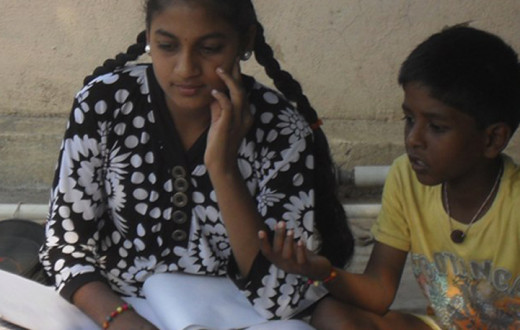Kamala Kanta Dash is the newest faculty member of the Faculty of Good Governance and Public Policy at the Sri Sri University.
He is pursuing a Ph.D on community engagement in public policy from the Monash University in Australia. Kamala also holds a Bachelor's degree in Philosophy and Political Science from Utkal University, a Master’s degree in Political Science and World Affairs from Ravenshaw University, and an M.Phil in International Relations from JNU.
He is also an Ambassador at the Parliament of the World's Religions, Chicago, and Carnegie New Leader at Carnegie Council for Ethics in International Affairs.
Q. What is your role as Ambassador at the Parliament of the World’s Religions?
I started in 2009 as a Monash University Delegate; ours was a small delegation and I was excited to see people from so many different faiths speaking about themselves and engaging on how best world peace can be achieved.
I also started working as a volunteer in 2009, and in 2013 they appointed me to facilitate dialogue among school children and college students coming from different traditions.
And I started doing the same in India; I ensure I offer a platform for people who have different views about each other in my classes. I want to build the bridge to an extent where they can be comfortable with each other and engage without suspicion. I want them to build a mutual respect for different faiths.
Q. What made you pursue the subject of Community Engagement in Public Policy in your PhD research?
I was always curious about public policy because it is made in the parliament, where people play little role and counter-terrorism policy has essentially been very secretive. It doesn’t allow participation.
But at the global level, countries like America, Britain, Australia or Canada have been developing new models of public engagement, on how the Muslim community looks at terrorism and what they can do to strengthen the anti-terrorism mechanism, to facilitate interaction between law enforcement agencies and Muslim youth to ease misunderstanding.
India was immune to these practices and India was my focus of interest. I was looking at the best global practices and how India can learn from them.
Q. How is this issue relevant to India?
There are no clear-cut identified steps to follow; there is no system of procedure for terrorism-related cases in India. Innocent youth are often arrested and acquitted by the judiciary after a few years. But these youngsters do not find a place in the community once they are released and they are not compensated.
The government is not able to clear these gaps in the judiciary and the police. We need to develop law and order in investigation. Our police is ill-equipped to conduct investigations. They look at quick responses.
There needs to be a clear policy that balances the interests of both parties. We need to have police reforms and an adequate justice system.
Communal harmony will only be established when the government does not appease a particular community.
Our present Prime Minister has emphasized on the fact that we need to create skilled youth in our country; this means we need to offer educational and employment opportunities along with an efficient law and order system. He says if we do not do that, these young men will become terrorists or will resort to violence in a few years.
Q. What do you think makes the Faculty of Good Governance and Public Policy at SSU unique?
The course is suitable for anyone who wishes to serve the country in various capacities, and we will ensure that they are trained with the required skills.
We are one of the few universities who offer the program for fresh graduates. Most other universities offer courses in Public Policy for middle-level bureaucrats and professionals.
We offer specializations in corporate governance, for those who want to be PR professions and head CSR initiatives; NGO governance, which plays an important role in bridging the rich-poor gap; political governance, where we offer internship opportunities with political leaders across all parties and administrative governance, for those who want to take up the civil service examinations and become bureaucrats.
We also offer a civil service training program for students during the Master's program. As I've mentioned before, we are willing to train any graduate who wishes to serve the country in any capacity, and we will give them the necessary skills to do so.





